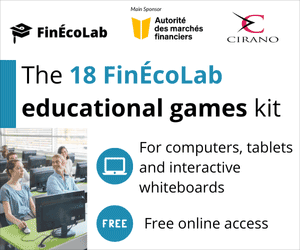BY Erica Balch
"What am I going to do after I graduate?""What academic path should I pursue?" These are questions many students grapple with at some point in their undergraduate careers.
But thanks to experiential learning courses offered by the School of Interdisciplinary Science (SIS), third and fourth year students in McMaster's Life Sciences program have the opportunity to explore some of the many options open to them.
The courses, which are mandatory in the Life Sciences program, are aimed at providing students with the chance to apply their knowledge and gain real-world experience, while learning about potential career paths, or areas of future academic interest.
Many students choose to complete an experiential learning placement, which provides them with an opportunity to shadow a professional in a science-related workplace ranging from a dentist's office or pharmacy, to a volunteer organization or a research lab. Students can also choose to complete a research thesis or a mentorship experience within the McMaster community.
"The feedback I ve received from students is that they absolutely love these courses," says Sunita Nadella, experiential education coordinator in SIS, who explains that all Life Sciences students must complete three units of experiential learning. "Many of them tell me this is the most enjoyable course they've taken- they say it's where they've found themselves academically as well."
Throughout the term, students complete 60 hours of experiential learning, as well as a number of assignments, including reflections. They also return to the classroom once a week where Nadella leads them in discussions about their experiences. "I give them goals, we talk about what went right. We also talk about the challenges, and how we might overcome those," she says.
"Many students find a career path they want to pursue,"continues Nadella. "Others find they don't like what they're doing at their placements, but that's useful too. Also, since we all come together once a week, they get to hear about each other's placements and learn about other careers, so they benefit from that as well."
Kim Dej, Associate Director of SIS, says that these kinds of experiential opportunities are invaluable for students.
"When students participate in experiential learning they are able to apply what they have learned in the classroom and make exciting connections between diverse concepts," she says. "It makes learning relevant to their lives, but also shows them how what they do can have a positive impact on the people with whom they work"
Click here to read the full story.













